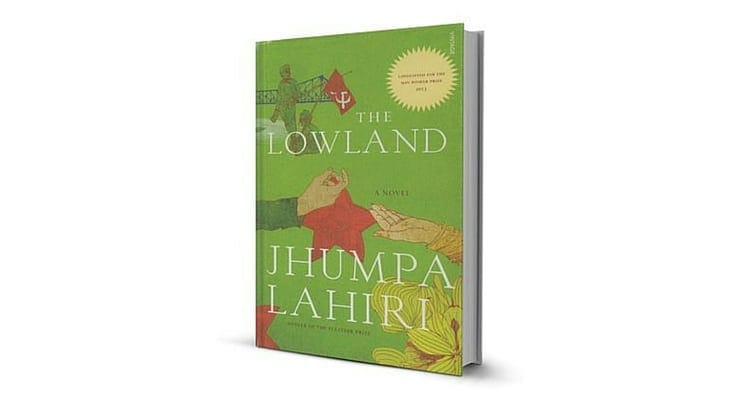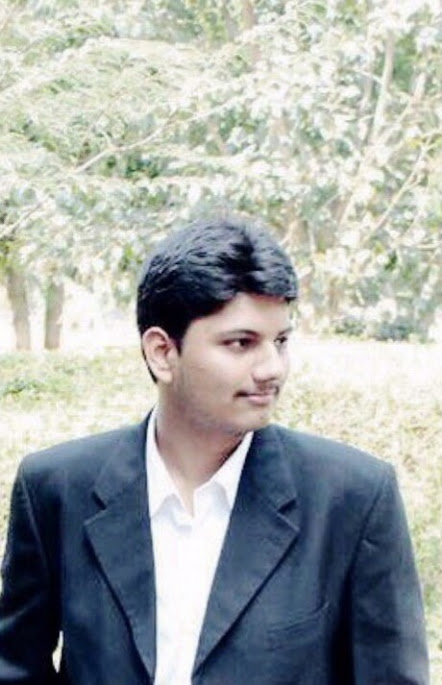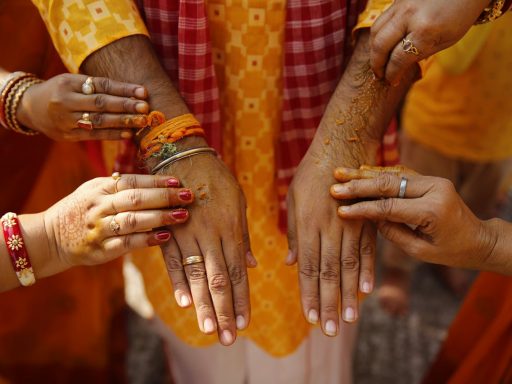Jhumpa Lahiri is an American Author of Bengali Origin. She is the author of three previous works of fiction : Interpreter of Maladies, The Namesake, and, most recent, Unaccustomed Earth. A recipient of the Pulitzer Prize for Fiction, she is a member of the President’s Committee on the Arts and Humanities, appointed by U.S President Barack Obama. Her book, ‘The Lowland’, published in 2013, was a nominee for the Man Booker Prize and the National Book Award for Fiction. Lahiri is currently a professor of creative writing at Princeton University. Mail Today has praised The Lowland by calling it ‘Lahiri’s best work’.
‘The Lowland’ is referred to a 3-4 feet deep cavity which often got filled up with rainwater with floating weed growth at its top. It was the place where Subhash and Udayan used to hide themselves while playing hide and seek during the early days of their childhood in Tollygunge. It was the last place where Udayan took his last breaths, while the police was seeking him.
Subhash and Udayan are two ‘inseperable’ brothers. They spent their childhood together in Tollygunge, Calcutta.Though they differ in their age by a mere gap of 15 months but still, they seem to be twin brothers. They play together, they eat together, they roam about together through the streets of Calcutta together, hand in hand. The thing that sets them apart is their psyche. Subhash is diligent since childhood. Udayan, on the contrary is sharp minded, always aware of his surroundings. He exemplifies a radical outlook. He does not fear anyone. This lays the foundation of the story ahead when after pursuing their graduation in respective fields, Udayan finds himself drawn towards the ‘Naxalite Movement in Naxalbari’ and decides to join it. He starts idealizing ‘Che Guevera’ and ‘Charu Majumdar’. Udayan wants that Subhash should be an ally to him, but Subhash does not agree. Udayan is ready to risk everything, his life, his family for the sake of his beliefs. Subhash decides to join a program on Oceanography at Rhode Island, while Udayan continues to participate actively in the Naxalite Movements across Bengal. Subhash starts liking his life in Rhode Island. Subhash develops his first feelings for Holly while Udayan writes a letter conveying to him that he has married the girl he loved, Gauri. The Mitra Family is, however annoyed with Udayan’s decision as they always wanted Subhash to marry before his younger sibling. It was his 3rd autumn in Rhode Island when he gets a letter from home saying, ‘Udayan killed. Come back if you can’
In deep grief, Subhash visits his homeland after a gap of 2-3 years. He becomes well versed with the emotional breakdown his family is going through when no one comes to station for welcoming him. He meets his parents, sees Udayan’s wife, Gauri. She is a young, pregnant widow with Udayan’s child in her womb. Subhash decides to marry Gauri for the sake of his brother’s child with no mal intentions in mind. He takes her to Rhode Island with him. Gauri considers it to be a compromise and nothing more than that. She is not attracted towards Subhash in any way, neither physically nor emotionally. Subhash is well aware of the shock Gauri had suffered after she lost her husband, who was her friend, her first love. A few months later, on a rainy night, Gauri gives birth to her daughter, Bela. Subhash thinks that Gauri lacks motherly instincts. She is not like other mothers, who coax their children all day long. Bela grows as an independent child despite both her parents living with her. The relationship between Subhash and Gauri is cold. Meanwhile, Subhash’s father passes away. Bela and Subhash visit Calcutta to perform ceremonial rites and support her widow mother. Bela and Subhash spend 6 weeks in Calcutta. They go back to their home in Rhode Island to discover that Gauri has eloped. She had left a letter stating that she had gone to California for a job offer, which she considered more important than her family. Bela is raised by her father alone. She feels the gap for a while, but soon copes up soon. She learns new things, completes her studies, finds jobs that interest her. She visits her father seldom. Subhash, however does not resent and accepts this. One day, Bela tells Subhash that she is pregnant. Subhash is shocked as her daughter, whom she still considered a small girl is about to give birth to her own child. Soon after, Subhash tells Bela that she is not his daughter, but Udayan’s. Bela is shocked at hearing this and curses Subhash for hiding the truth from her since so many years. Next morning, she leaves him. After some days, she gives birth to her daughter, Meghna. Meghna grows up quickly with her mother and grandfather. Subhash sends the divorce documents to Gauri after all these years. Gauri turns up one day at Subhash’s residence in Rhode Island. She meets Bela and Meghna. Bela is furious about her coming back after leaving her alone when she was just 12 years old. Gauri understands Bela’s condition well and leaves after keeping the signed divorce documents. After many years, Gauri visits Calcutta (now Kolkata) to see the home in Tollygunge, where she made love with Udayan, spent early days of her marriage. She tries to end up her life, but then again nostalgia strikes and goes back to the time when Udayan had asked her for a movie together.
The story is a treat for those who love reading Indian Drama. The biggest USP of this book is how closely it connects with our lives. My first thought after reading the book – ‘Was I watching a film?’ It displays various real life snapshots from the Indian families and the Indian culture. It closely links with the typical Indian households having two sons – one wise and one not. Subhash is the wise one here in the story, while Udayan is guided by chauvinism. The way, one son marries the girl of his choice and being chided away by his parents for doing so has been portrayed well in the story. The way, elder son, Subhash sacrifices his own dreams and fantasies for the sake of supporting his family. It keeps the readers well engrossed until the end of the story, with pangs of emotional drama, sentiments, hurt expectations and idealization of relationships running through its thick and thin. It leaves the readers longing for more at the end of every chapter. The story also presents a bird’s eye view of lives of militants as Udayan, who was drawn towards the Naxalite movement exemplifies several other young men and women who give up their everything to support a radical course of action. They do not care about their families and are just focused on subverting the paradigm.
Talking about the positives intakes from the story, the story restores the faith in the concept of ‘Family comes First’ in today’s modern world of extreme practicality. The way, Subhash sacrifices everything for the sake of his family, for his dead brother’s wife is hard to be found these days. Another important thing which I learned after reading the book was that, our decisions affect many lives, not only ours. We must consider all the pros and cons before making any decision in life. We must consider the aftermath of every small thing. The way Udayan gave up everything for the sake of the Naxalite Movement without even giving a second thought proved to be detrimental for his entire family.
Adopting the role of a Critique, I consider various things in the story were exaggerated or were not required. The plot up to the point when Gauri left for California was evenly paced. However, after that the story moved quickly and wrapped up entire middle age of Subhash and Gauri in just a few pages. Bela, who had passed his graduation and went for job to far off places in America, becomes a mother in the very next chapter! At some points, readers are bamboozled as suddenly nostalgia strikes back and we go back to Kolkata from Rhode Island within a few lines and are back home in next few lines. The writer has also idealized ‘love making’ in a very explicit manner, which may be disturbing for young readers. The author could have presented it in a more sensitive manner.
In a nutshell, the book is must read for lovers of Indian Drama as mentioned before. It is a book suitable for anyone, teenagers and married couples should definitely read it. However, young children might find some text disturbing.
Check Goodreads Ratings








I really liked your article. Really thank you!